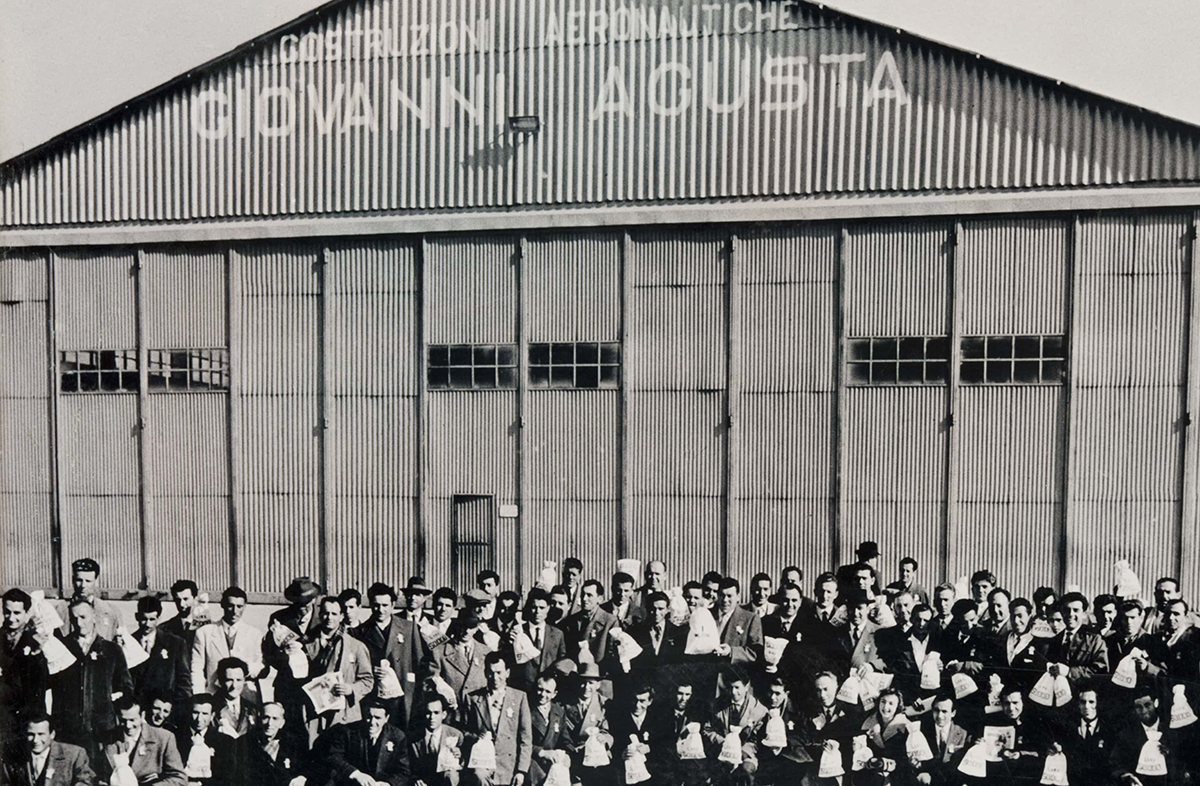
It goes without saying, but let’s just say it anyway, the most well-known food, art, roads, vehicles and motorcycle riders in the world come from Italy. The Italians know how to mix passion into their daily lives like no other nation, they’ve got it nailed. One of those long-living examples from the motherland has to be MV Agusta, a company that lives, rides and shouts out their passion for motorsport, and design and always showcases to the world what true motorcycle exotica looks and feels like.
What started as Count Giovanni Agusta’s passion for aeronautics in the small town of Cascina Costa soon turned into supporting WWI and WW2 as the Italian Royal Air Force’s main servicing and manufacturer of parts. As war died down, one of Giovanni’s sons Domenico took over and decided to diversify the business and also run with his very own passion, a passion for motorcycles and racing. MV Agusta was officially born, MV being the abbreviation for “Meccaniche Verghera”, which simply means Mechanics and Verghera was the hamlet where the first MVs were made in the late 1940s.
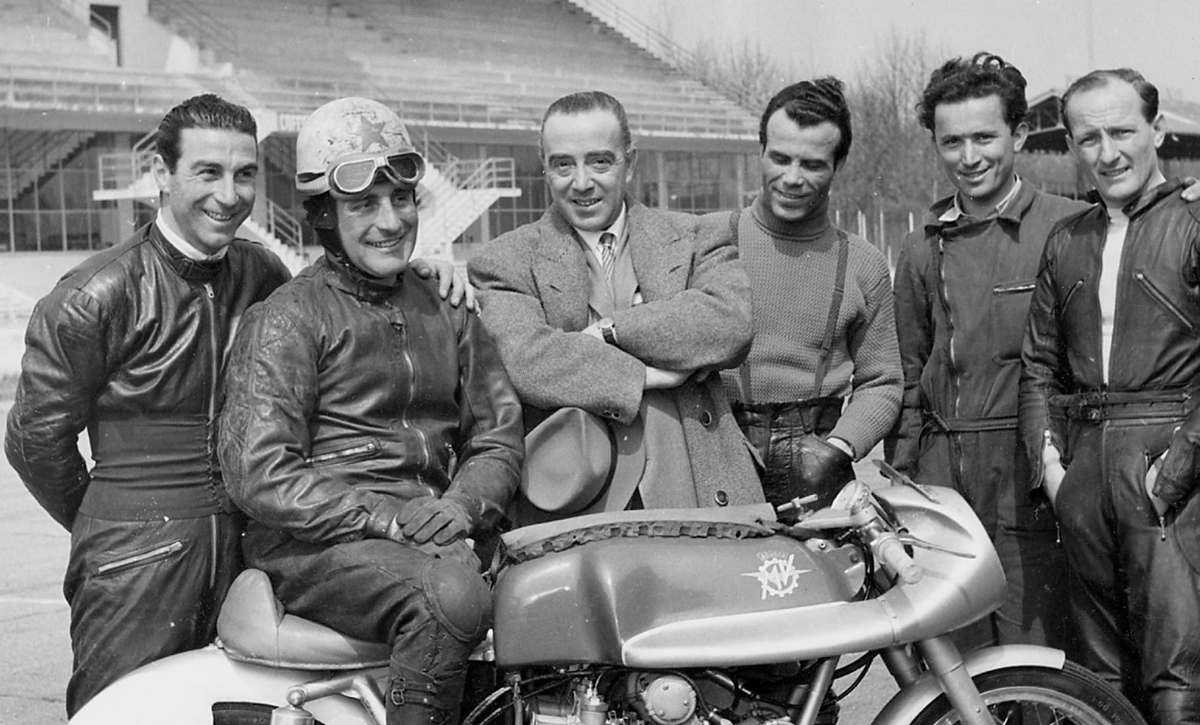
MV Agusta’s history has been marked by victories on circuits around the world. For heaven’s sake, their first motorcycle, the MV 98 Sport brought the manufacturer their first taste of victory at the hands of Franco Bertoni at Carate, Brianza. MV Agusta couldn’t have started their story any better, even if Hollywood had to write it themselves.
What followed was a string of victories that placed the company in the spotlight up until their last win in 1976. Throughout MV’s history, MV Agusta has been associated with some of the most successful riders in motorsport history, including MotoGP legend Giacomo Agostini, Carlo Ubbiali, Mike Hailwood, Phil Read, John Surtees, and Gary Hocking. With these acclaimed riders, MV reaped an incredible 270 Grand Prix motorcycle races, 37 World Constructors’ Championships, and 38 World Riders’ Championships.
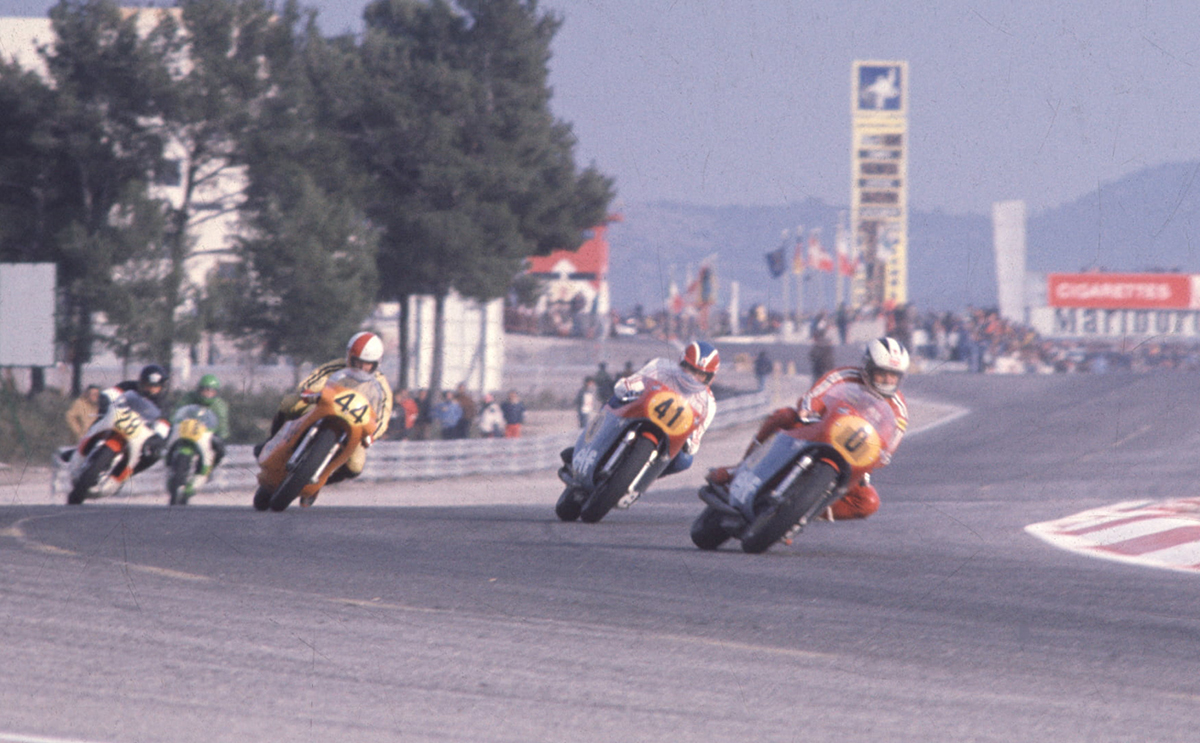
It’s more than fair to say that racing put MV Agusta on the map, but after disappearing off of the map for a couple of years, their resurrection in the early 90s thanks to Cagiva took a slightly different angle than before. Designed by Massimo Tamburini (the man behind the beautiful Ducati 916), Ferrari-derived engine development (that’s where the ‘F’ comes in) and backed by Cagiva, we are talking about the F4 750. MV made their return to the industry with the beautiful F4, not focused on racing but rather as an exotic motorcycle manufacturer building masterpieces in design with throwbacks to their glory days.
Why so much history, I thought this was a SuperVeloce review? Well, to properly understand the SuperVeloce, you need to know about these two eras of MV. Now I think the F4 takes the prize money compared to the 916 in the beauty pageant and my reason for thinking so is because almost 30 years later, the F4 parked next to the latest superbikes today still looks timeless. Remember the word timeless, we will touch on that again.
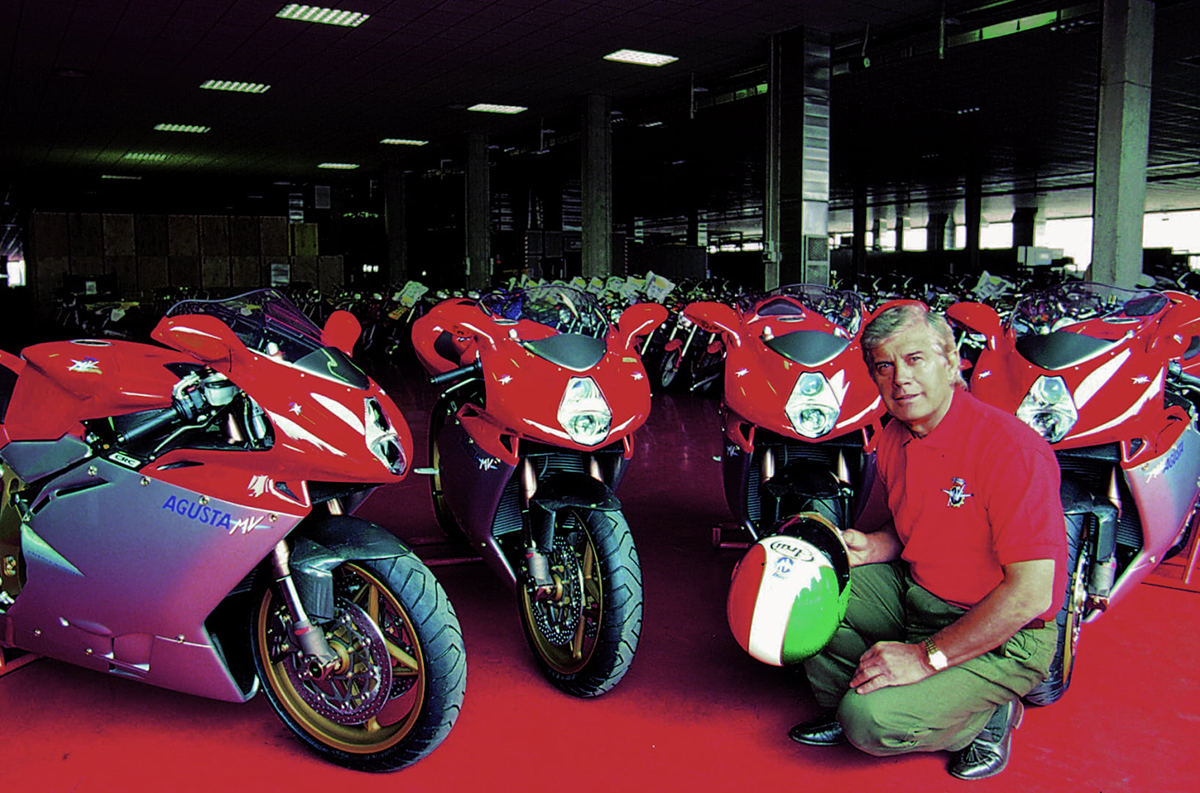
Now MV didn’t completely give up on racing, but they sort of stuck to the middle-weight supersport series with their F3 675 model, which became the base of the loved F3 800. The F3 800 is a pedigree race machine that never raced but puts out an astounding power-to-weight ratio with the F3 only weighing 173 kg, delivering 150 hp out of its 798 cc triple and it’s also mated to a unique counter-rotating crankshaft. The bike is an absolute riot to ride, delivering near superbike levels of performance.
Now instead of doing what the rest of the motorcycle manufacturers do, which is detune some old superbike engines that are lying around the factory or put an underpowered naked bike motor into what they call a Neo or Cafe Racer, MV Agusta has just tailored Grandad’s old suit to fit the F3 800 and boy does it ride as good as it looks. It’s a timeless design with modern throwbacks to the past, but with a thoroughbred machine beneath the covers that will rev out to 14,000 rpm.
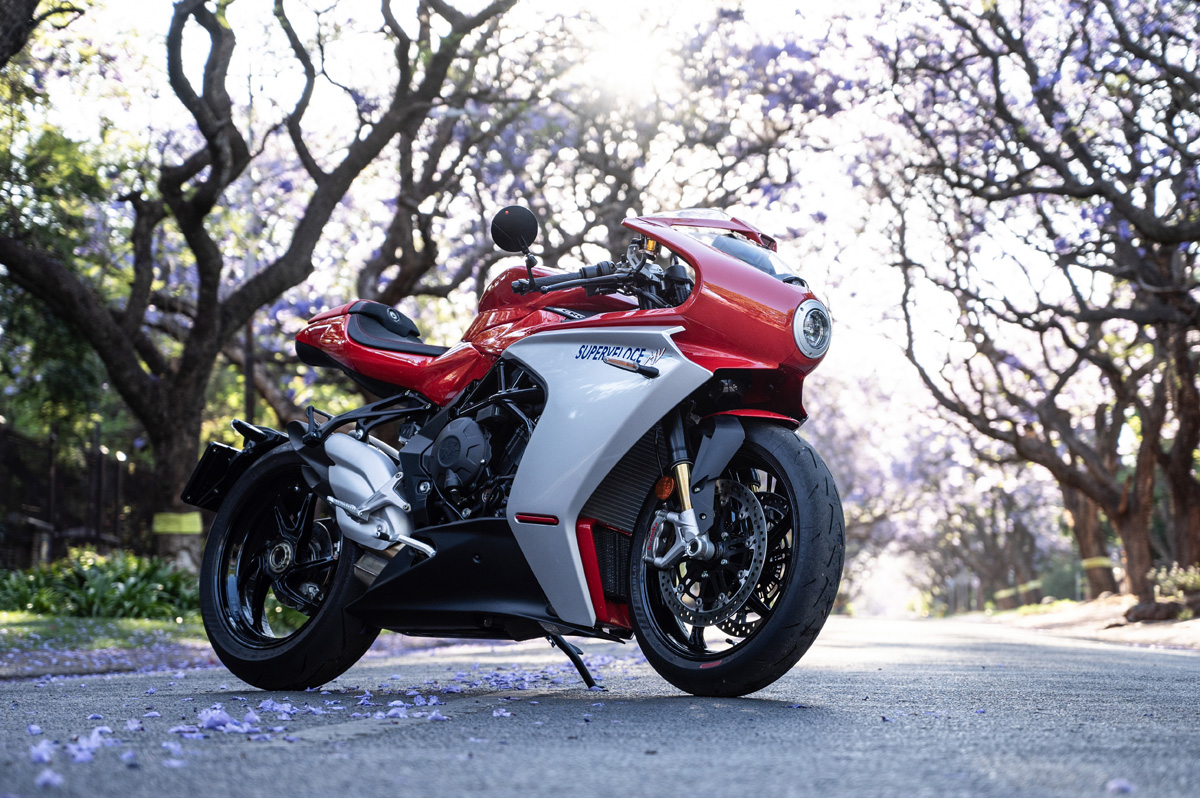
Now some would call the older fairing design on the SuperVeloce a dustbin wrap-around fairing, but I think that’s too trashy to say in the case of the SuperVeloce, I mean it looks like it travelled back in time and all that was tasteful got dragged back into the present time with it. The bike is a perfect combination of vintage racing meets modern elegant lines. The fairings for one do not have any visible fasteners which gives it a super clean and flowing look from one panel to the next.
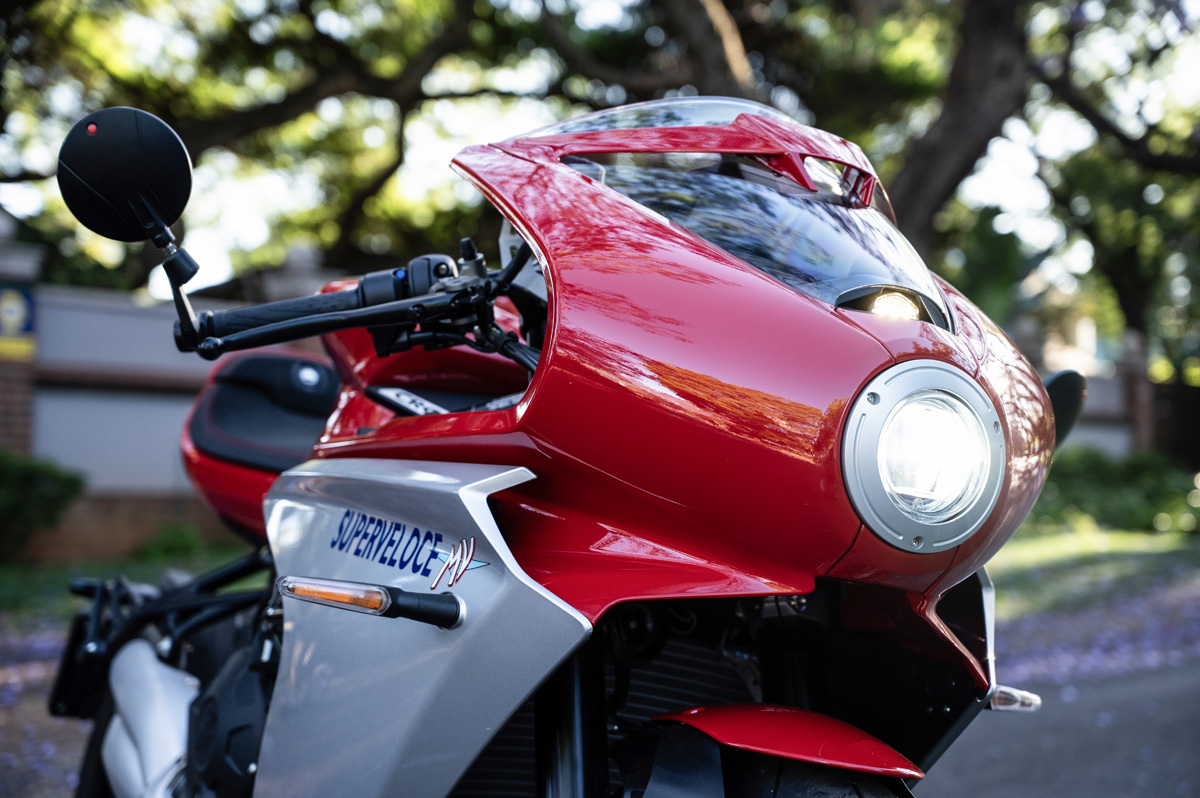
The upper fairing in particular expands from the round headlight and is profiled with a retro sense of aerodynamic efficiency. Lower down the fairing adopts a modern profile, incorporating lateral air intakes and a spoiler. The masterfully contoured F3 tank conveys a sense of lean muscularity that carries through to the other end of the bike, where the seat cowl tapers into another rounded light, a look that’s not particularly retro-nostalgic but is perfectly coordinated with the front.
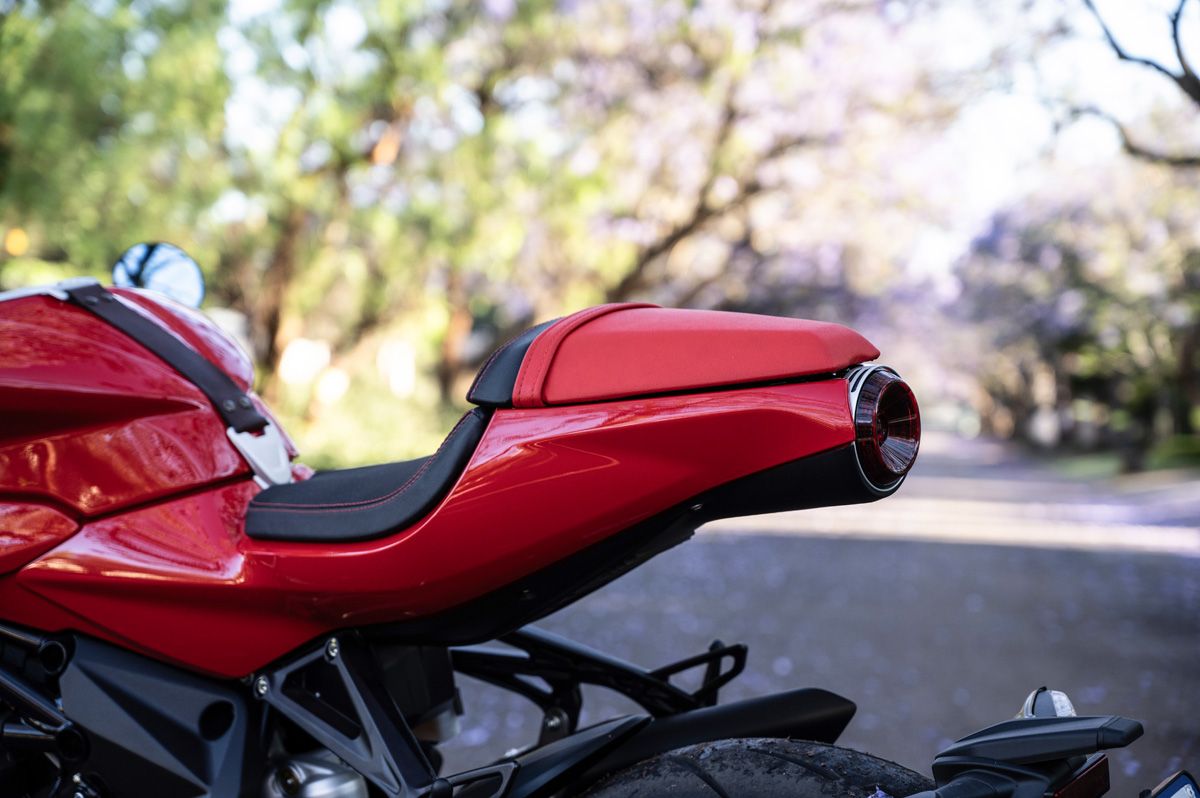
How could you not love the styling of Superveloce, I mean it’s got a senseless leather belt running down the middle of the tank, a machined triple clamp, red stitching on its seat that flows into a red pillion seat that mimics a cowl, the throwback CRC logo (Castiglioni Research Centre) near the top of the frame, but then it has a single-sided swing arm and triple side exit exhausts.
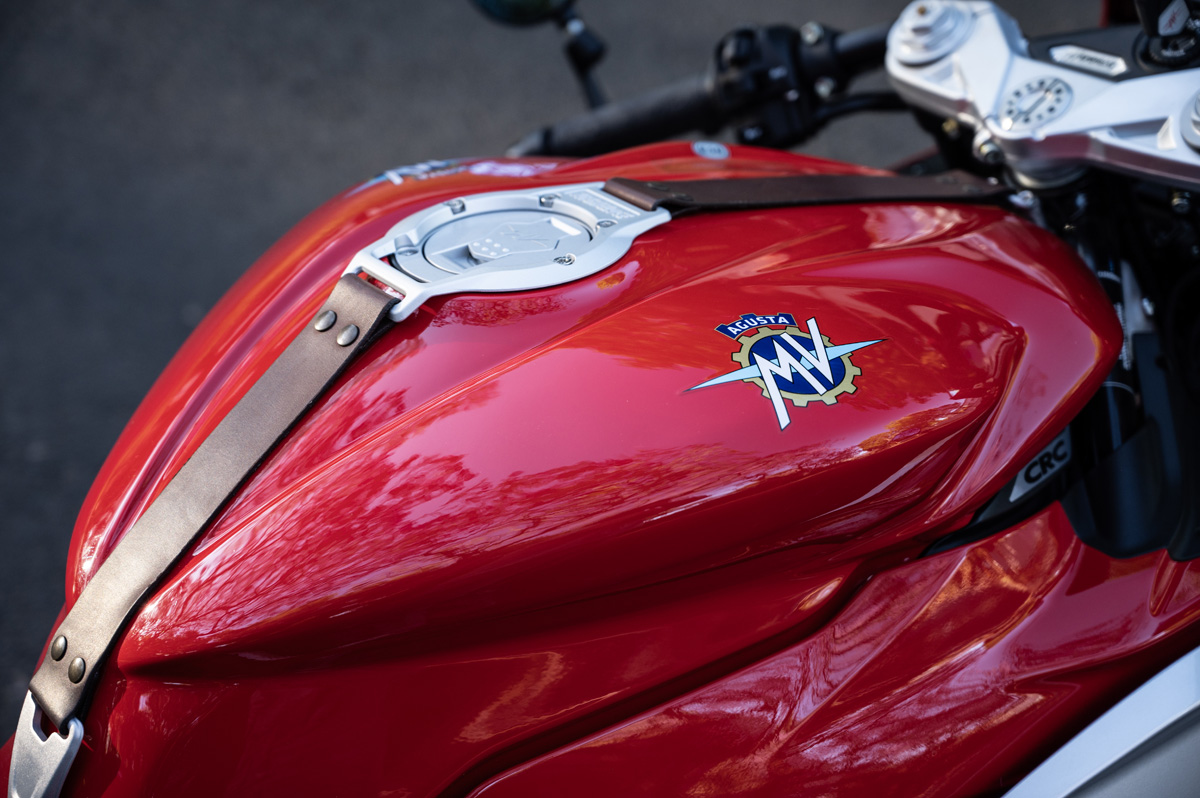
It’s just pure exotic I say, and it gets everyone’s attention. Oh, if you want to flash or make your SuperVeloce look like Agostini’s 500 Triple, Arrow also makes custom black pipes that look just like Ago’s.
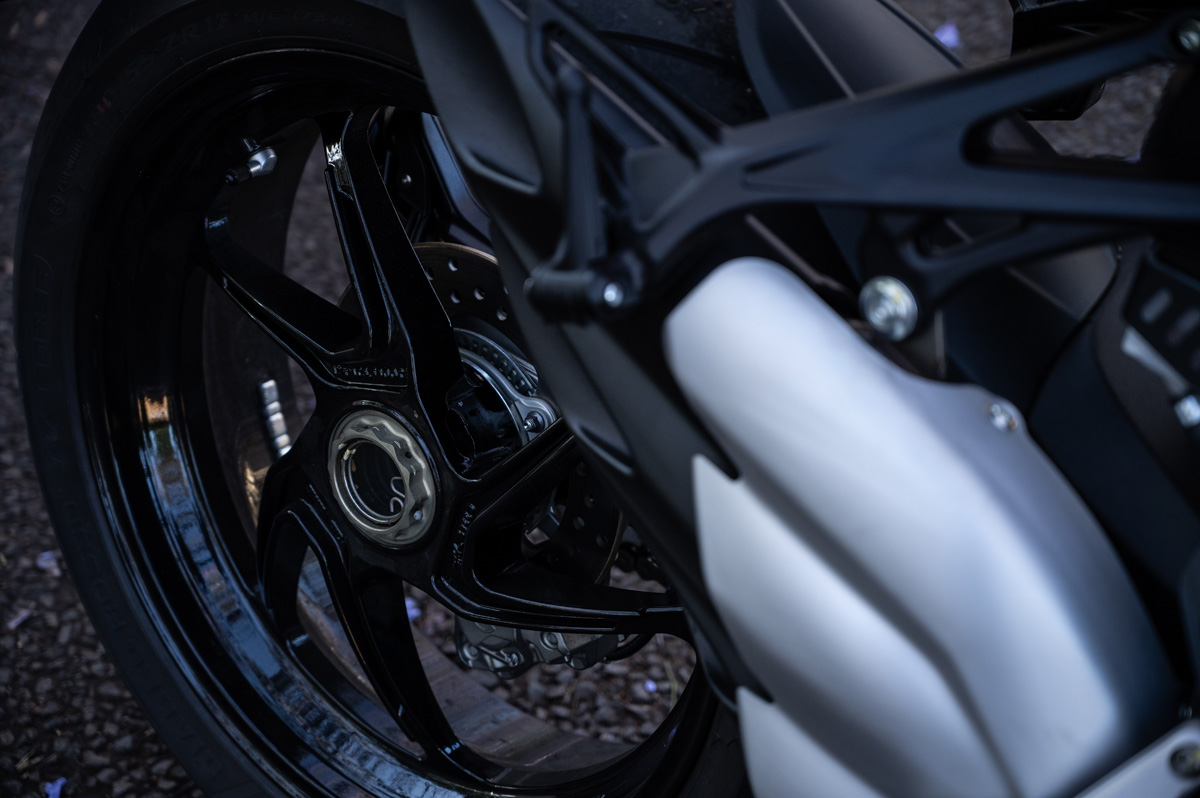
As for modern electronics, MV have thrown their latest 5-inch TFT instrumentation display with what they say is groundbreaking tech. I think MV have laid out the display in a simple way that doesn’t distract the rider from the experience, you’ve got FLC (lift control) on the left, rider mode in the centre and traction control on the right of your screen, all accessible with one button without going into different chapters within a menu. I will say, that not having a petrol gauge on a modern bike reminds me a lot of my 94 Aprilia RS 250, just without a reserve switch—the bike does have a warning light that pops on though. I guess that is part of the MV charm!
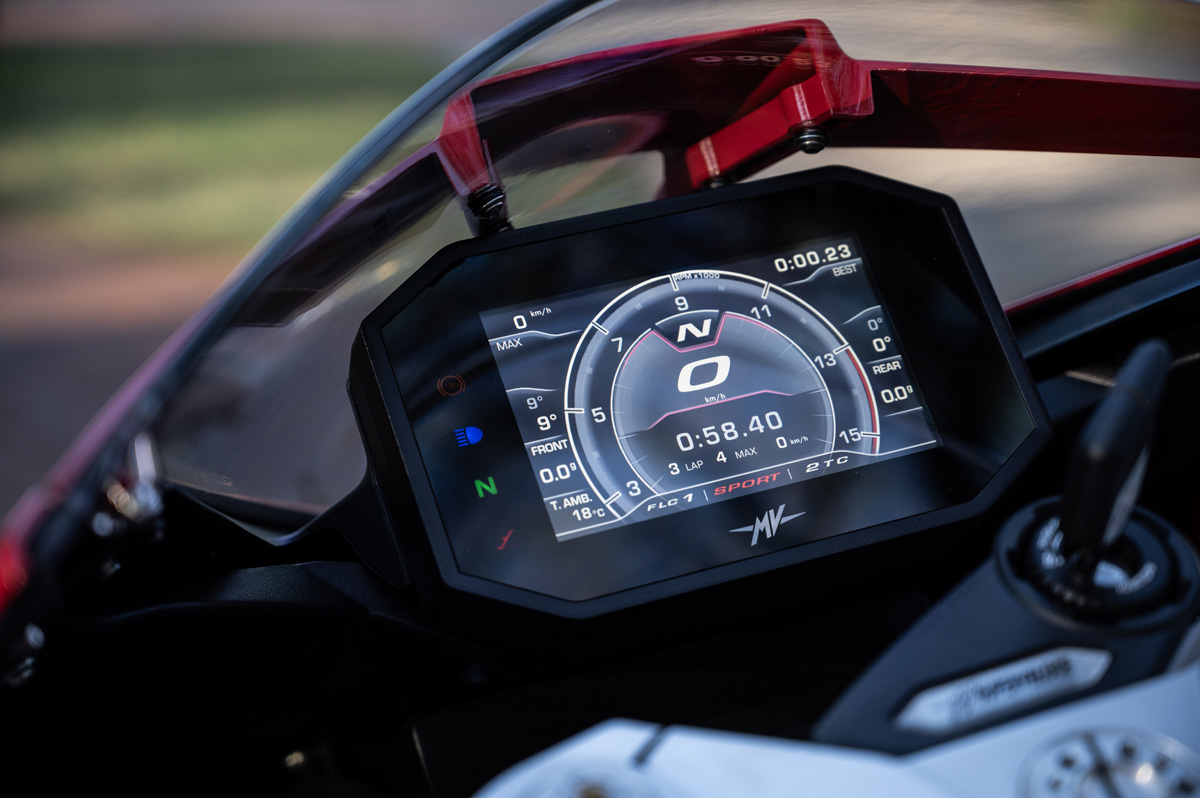
The lap time, lean angle indicators and launch control will probably never get used by the kind of clients that would be interested in the motorcycle, but again, this is a modern take on an old race machine. I would have personally gone one step further and set the background of the display to yellow, like on the original F4 750, just to be extra nostalgic or even go for a round TFT like on the older Yamaha XSR 900 or Triumph Trident 660.
Riding the SuperVeloce is the same in ergonomics as the F3, which is very wristy and elastic leg-like, but it gives you a completely different experience because of what you see in the reflections as you ride by and as you look down at the leather running across the tank. The SuperVeloce is nosy and stiff in its handling characteristics out of the box, with some suspension setup you could get the ride setup for peacocking around town just right.
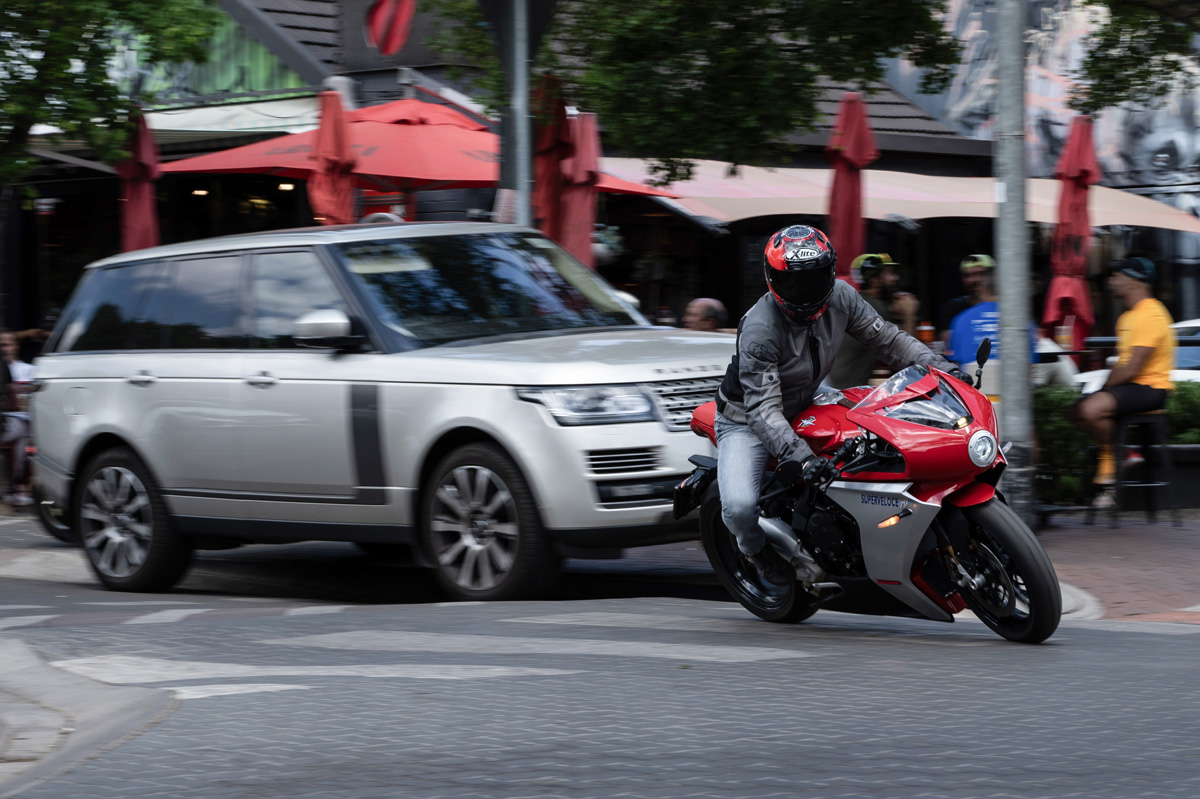
When you do eventually get out of town, you are riding pretty much the cream of the crop supersport machine and what that comes with is amazing high-speed handling, stability, brakes that work better than a pause button and standard pipes that somehow have past Euro whatever it is these day with an amazing Moto2 like scream past 10,000 rpm. Man, I love riding any of MV’s bikes that have this 798 cc triple, but the SuperVeloce takes the cake for me for the overall experience.
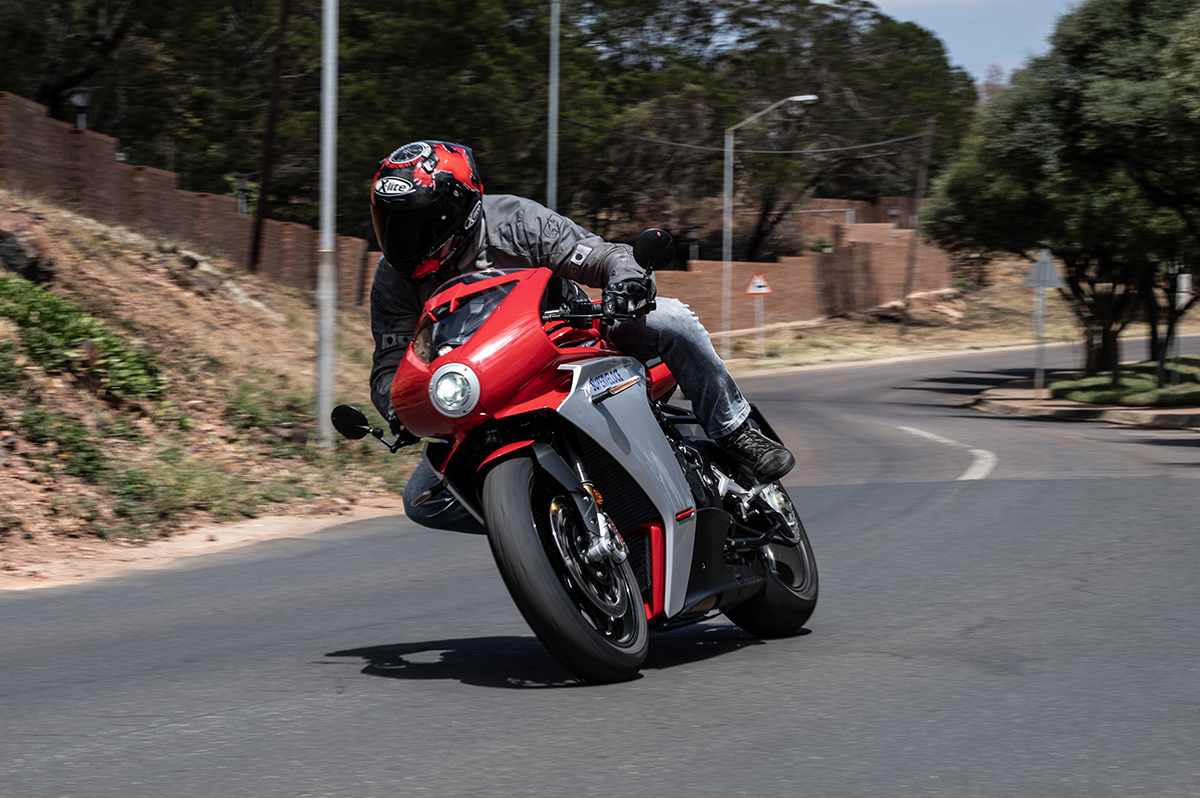
In the suburbs, like I said, you are riding a supersport bike so your turning circle is horrible, your wrists will get tired and you might even get a leg cramp or two which doesn’t exactly work very well when you are trying to pose. But, this is the price riders especially Italian motorcycle enthusiasts have paid and are happy to pay until the day they die, I’m one of them and I completely get it. The triple is rough under idle and is sort of like a child that is tired of shopping and wants to go home, constantly fighting in the lower rpms. That would be one of the main annoying factors, but you can ride around it by riding the clutch.
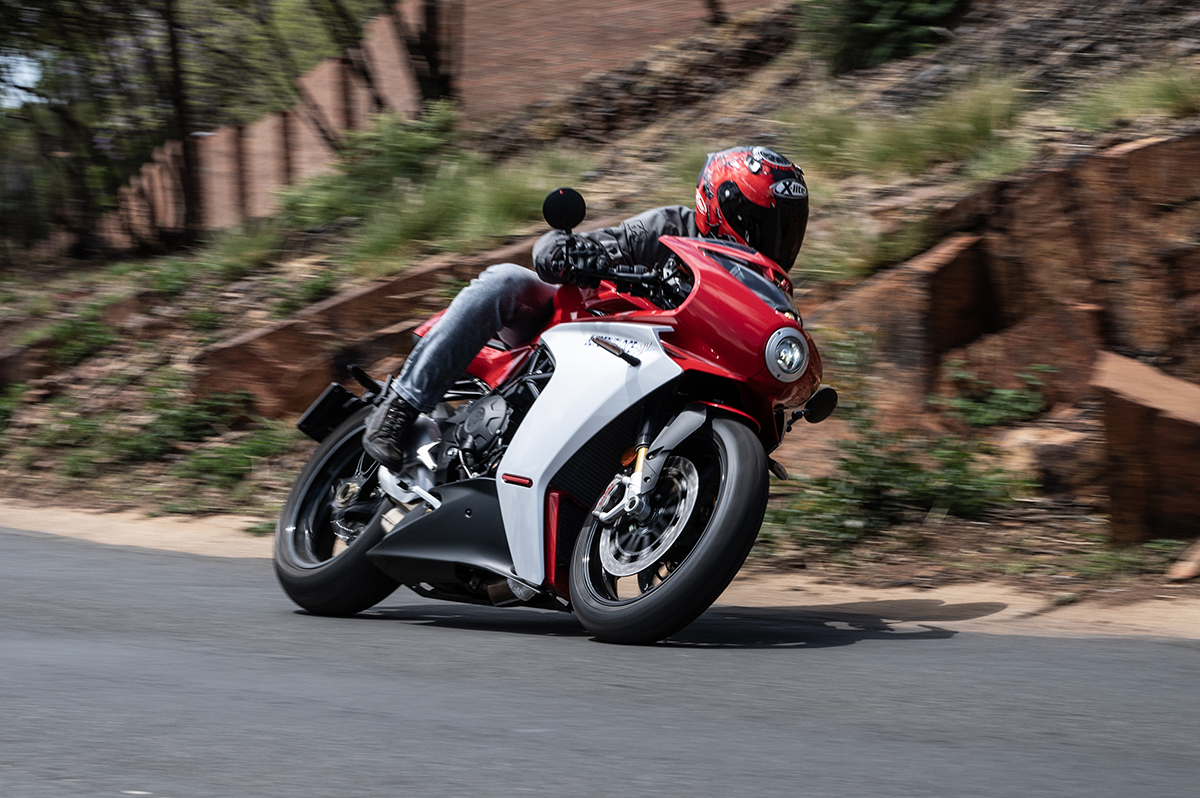
MV could have ditched the ‘Super’ in Veloce and could have given us a Veloce 800 with high clip-on handlebars, lower rear sets and a detuned 798 cc triple allowing for more torque lower in the rpm range, but everyone else already does that. MV Agusta doesn’t follow trends and I guess we see their racing background shine through the SuperVeloce in full effect and I can respect that.
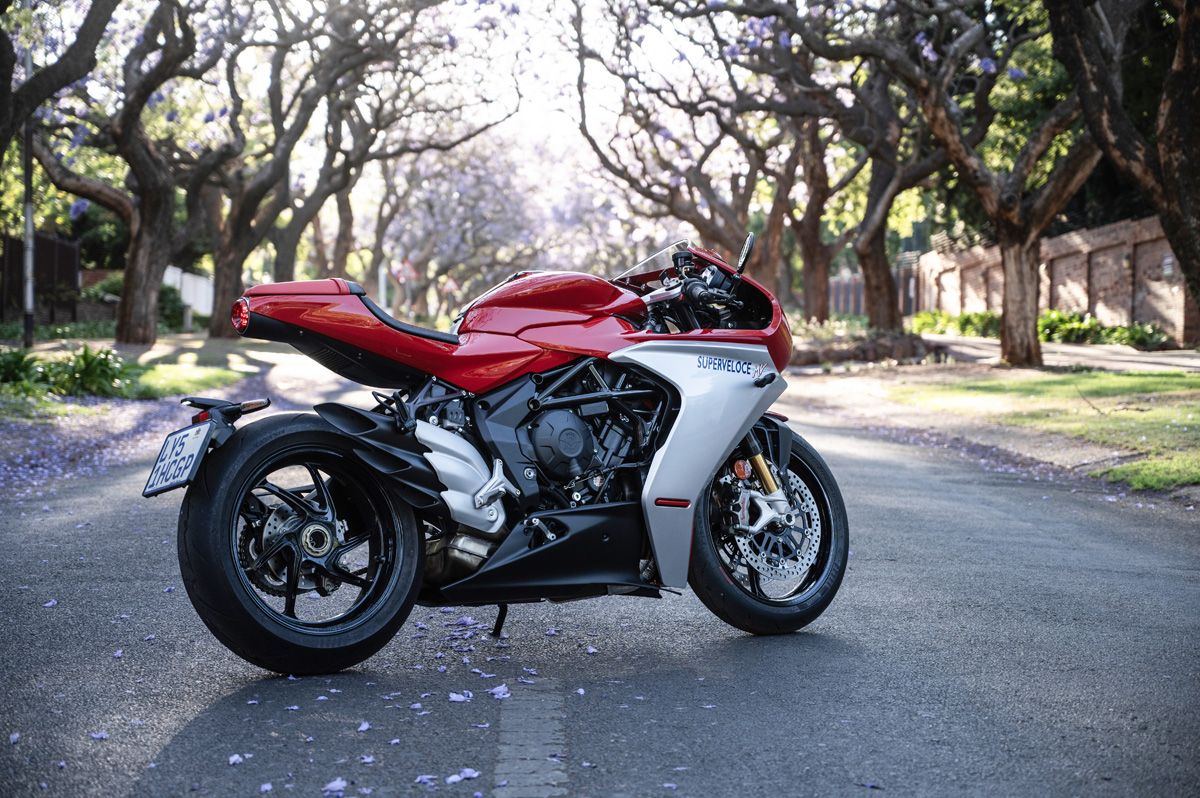
So, is the SuperVeloce an offer you can’t refuse? Well, if you can afford one (around 400k) and love what MV Agusta as a brand stands for, then yes it is. You will find your local MV Agusta dealer in Alberton at Fast.KTM.





